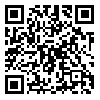Volume 1, Issue 2 (12-2011)
JRSM 2011, 1(2): 117-135 |
Back to browse issues page
Download citation:
BibTeX | RIS | EndNote | Medlars | ProCite | Reference Manager | RefWorks
Send citation to:



BibTeX | RIS | EndNote | Medlars | ProCite | Reference Manager | RefWorks
Send citation to:
Salehi H, Ghazanfari A, Movahedi A R, Nezakat Alhosseini M. Time Course of Attention during a Volleyball Jumping-Serve Using a Dual-Task Paradigm. JRSM 2011; 1 (2) :117-135
URL: http://jrsm.khu.ac.ir/article-1-147-en.html
URL: http://jrsm.khu.ac.ir/article-1-147-en.html
Abstract: (10801 Views)
In the present investigation we determined the time course of attention demands during the jumping service in volleyball by the dual-task paradigm. Fourteen voluntary junior elite volleyball players performed 60 jumping serve. Jumping-serve performance (JSP) as primary task and verbal reaction time (RT) to an auditory stimulus that was administered in four probe positions (PP), as secondary task was measured. Repeated measures analyze of variance (ANOVA) showed no significant effect of the PP on JPS, indicates allocating the most attentional weight to the JSP. In second analyze, effect of PP on RT was significant, so that all probes RT were significantly higher than the base line RT, indicates attention demanding of the JSP. Results also showed that pre-shot in run-up (PP1) and after the ball strike (PP4) had the greatest attentional demands respectively while per-jump stepping ahead (PP2) and just pre-striking the ball (PP3) had respectively the lowest needs of attention. The results indicate that attention follows a non-linear pattern, in the JSP.
Type of Study: Research |
Accepted: 2022/03/31 | Published: 2012/03/15
Accepted: 2022/03/31 | Published: 2012/03/15
| Rights and permissions | |
 | This work is licensed under a Creative Commons Attribution-NonCommercial 4.0 International License. |





